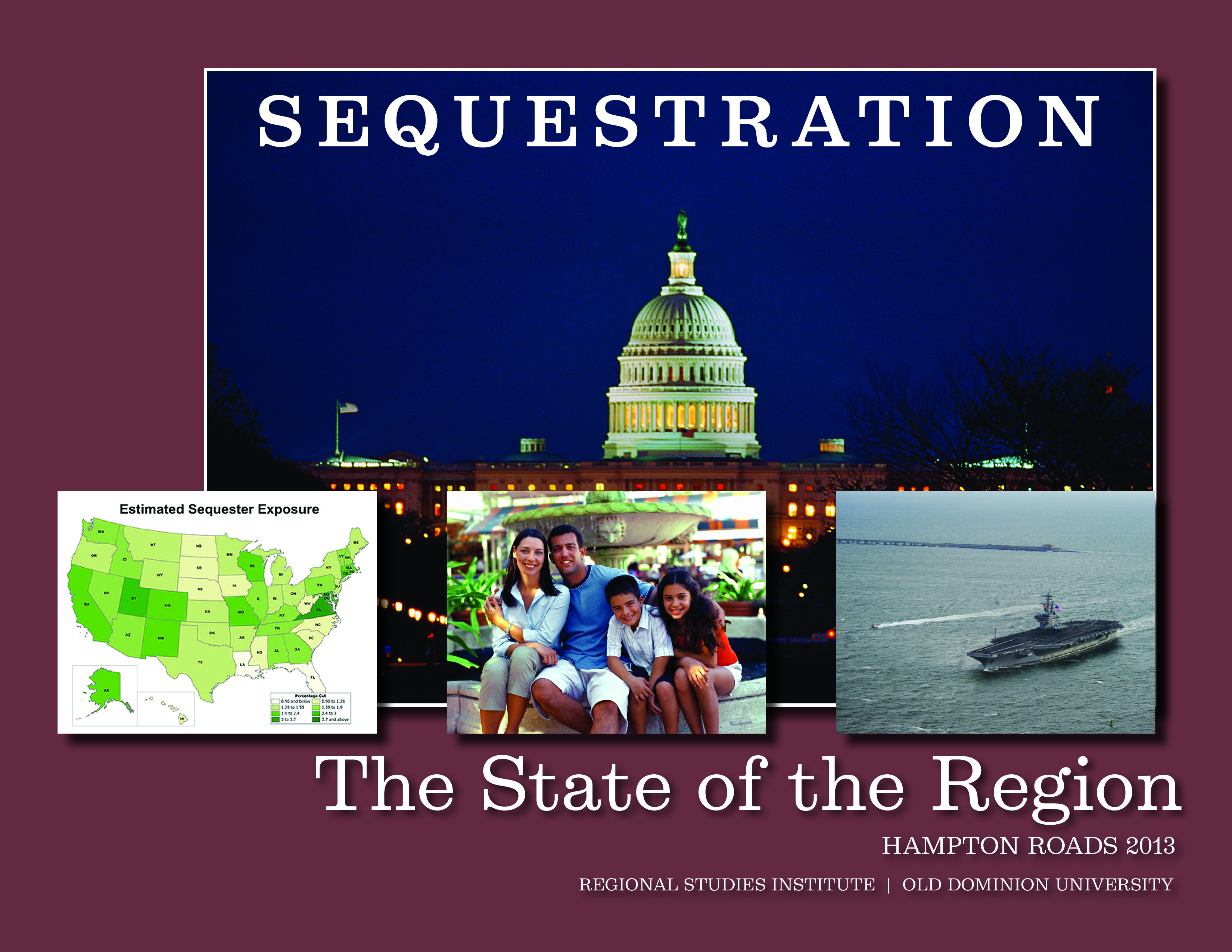ODU Regional Studies Institute Releases 14th Annual State of the Region Report

James V. Koch, editor of the Old Dominion University Regional Studies Institute's annual State of the Region report, presented his yearly address on the local economy at the Norfolk Waterside Marriott Tuesday morning. Approximately 800 regional leaders attended the program, which is sponsored each year by Lead Hampton Roads.
ODU's 14th annual State of the Region report examines a wide array of Hampton Roads issues, ranging from economic challenges to the growing trend in online education at the K-12 level.
Published by the university's Regional Studies Institute, the newly released report also assesses the region's improving housing market, takes an in-depth look at the economic impact of Hampton Roads' three coal terminals and reviews the contributions of the region's Asian Indian community.
In addition, the 162-page publication revisits the state of mental health care in Hampton Roads, examines the decisions city and county governments make in allocating financial resources, and recommends policies for regional economic growth in the final chapter, titled "OK, Now What Should We Do?"
At the breakfast Tuesday morning, Koch discussed the economic challenges of a drop in federal defense spending locally, and said that tolls are both divisive and a "death recipe" for economic development. He added, however, that income from tolls would have to be derived by other means if they were not in place.
He said the region needs to focus more efforts on attracting new business and industry and do what it can to keep people from moving out of the area. He also spoke in support of The Tide eventually coming to ODU and the Norfolk Naval Base, and in favor of a closer affiliation between the university and Eastern Virginia Medical School. He suggested that regional leaders would do well to pursue more research and development funds as a means of boosting economic development.
Gary Wagner, ODU professor of economics, followed Koch, talking about the regional economy's reliance on military spending. Noting that the effects of sequestration resulted in the loss of 4,000 jobs in Hampton Roads, a far smaller loss than had been predicted, he said: "I think we dodged more than a bullet. I think we dodged a hand grenade."
Koch, Board of Visitors Professor of Economics and President Emeritus, has served as editor of the State of the Region report from the start. It receives financial support from ODU and a number of local organizations and individuals, but Koch notes that the report does not constitute an official viewpoint of the university.
"The State of the Region reports maintain the goal of stimulating thought and discussion that ultimately will make Hampton Roads an even better place to live," he said. "We are proud of our region's many successes, but realize it is possible to improve our performance. In order to do so, we must have accurate information about 'where we are' and a sound understanding of the policy options available to us."
The 2013 report is divided into eight parts. Among its findings are:
It Could Have Been (Much) Worse: Sequestration, it turns out, did not damage our regional economy nearly as much as originally anticipated. Unfortunately, some daunting economic challenges still loom on the horizon.
Our Housing Market Turns the Corner: At long last, residential home sales and prices are up, while unsold housing inventory and foreclosures are down.
Coal: A Very Important Economic Engine in Hampton Roads: More coal is exported from Hampton Roads than any other port in the United States. The annual economic impact of this coal activity on our region approaches $1 billion.
The Asian Indian Community of Hampton Roads: This "model" minority group in our region has attained significant economic success and civic influence.
Virtual Education at the K-12 Level in Hampton Roads: Online education in our region is growing rapidly in a laissez-faire manner that exhibits little accountability.
Mental Health Care in Hampton Roads: "Streeting," Guns and Budgets: Virginia no longer institutionalizes many mentally ill individuals, but mental health budgets are insufficient to meet demands. The Commonwealth's rather lax guns laws limit our ability to keep guns out of the hands of dangerously mentally ill people.
Where Our City and County Governments Spend Their Money: City and county governments in our region focus their spending on education and public safety. However, the specific choices they make sometimes can be surprising. Governmental units now face politically difficult decisions, such as closing under-enrolled schools.
OK, Now What Should We Do? Is It Richard Florida's "Creative Classes" or Instead "Back to Basics" That Should Guide Our Future Regional Economic Growth? Richard Florida's "creative class" theory of why cities and regions grow is popular, but does not explain the world as well as traditional theories that focus on human capital and technology. This chapter recommends specific policies for our region that are more likely than Florida's to stimulate economic growth and critiques several hot, current policy issues.
All 14 of the State of the Region reports may be found at www.odu.edu/forecasting and www.jamesvkoch.com. Single paper copies may be purchased for $25. For more information contact Koch at 683-3458 or jkoch@odu.edu.

